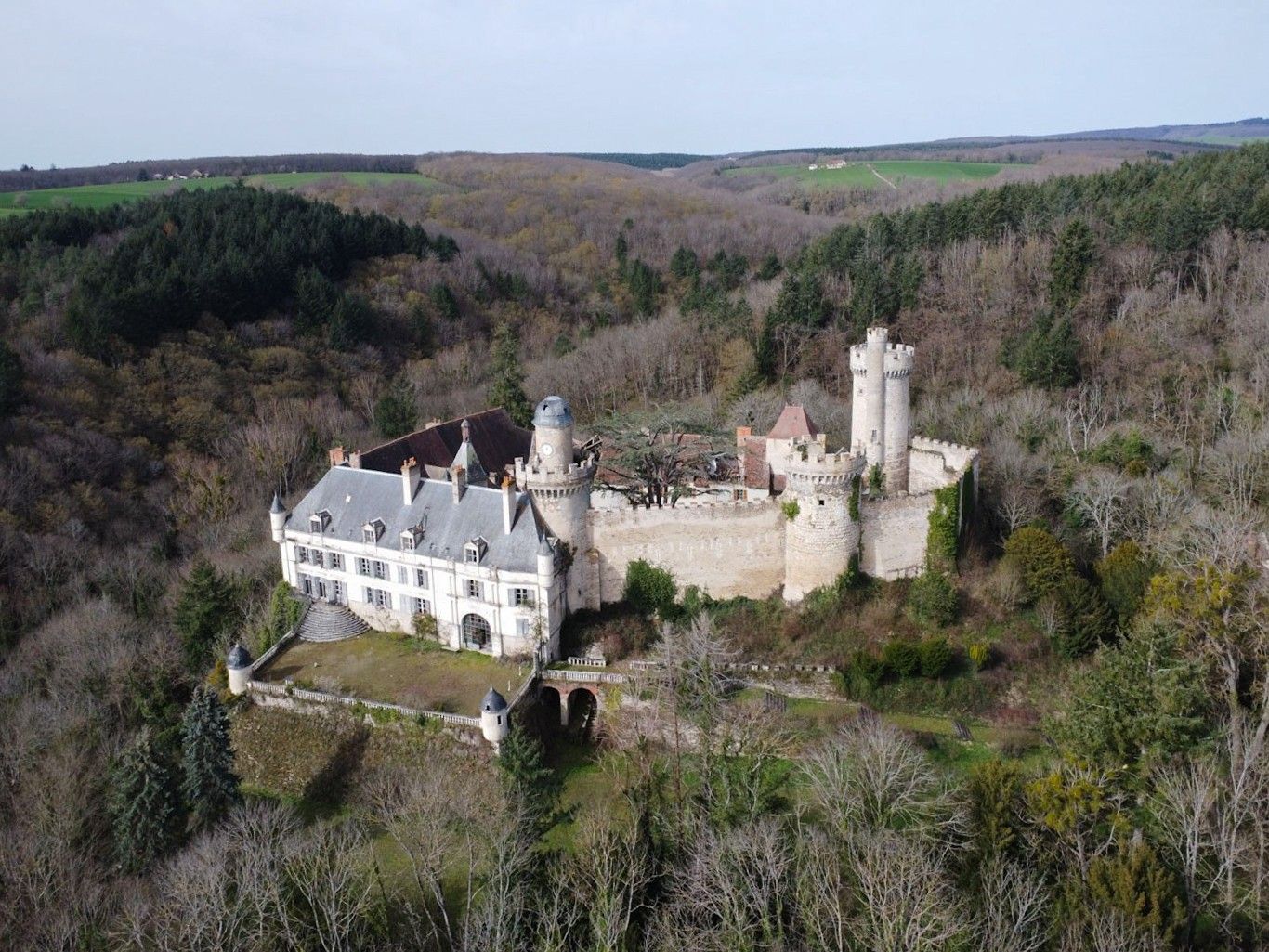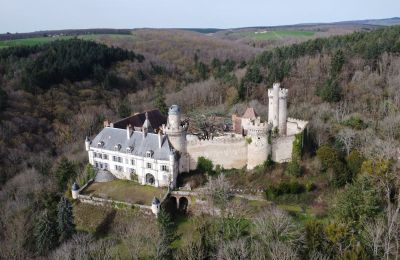EXCLUSIVE - EXCEPTIONAL FORTRESS OF VEAUCE IN THE HEART OF ALLIER - HISTORICAL MONUMENT - OVER 1000 YEARS OF HISTORY - PERCHED ON A ROCKY OUTCROP - SPLENDID VIEW - ENDANGERED MONUMENT.
Known to be the residence of Louis the Pious, Emperor of the West in the 9th century.
The location of the Veauce Castle dates back to the Gallo-Roman era, and sources of water from that time can still be seen in a cellar of the castle.
In the 9th century, the castle served as the summer residence of Louis the Pious, son of Charlemagne, Emperor and King of the Franks. The fortress underwent numerous periods of construction and reconstruction: in the 11th, 13th, and late 15th to early 16th centuries when the Lordship of Veauce was elevated to a barony. The castle then came under the control of Louis II de Bourbon, and after the death of the constable Charles III de Bourbon (in 1527), the lordship returned to the Crown.
It was not until the 19th century that Veauce regained its splendor with the arrival of Charles de Cadier de Veauce, an influential politician and friend of the Duke of Morny, who restored the castle in a neo-Gothic and neo-Renaissance style. He was also responsible for the construction of the current stables and the arrangement of a riding arena in a semicircular part of the fortress. It was also him who had the park designed by Count Choulot.
From the medieval fortress, the high keep, towers, curtain walls, a part of the covered wall-walk, and the kitchens remain. Despite its appearance as a medieval fortress, the Baron de Veauce managed to modernize the premises in the 19th-century style.
In the 20th century, under the impetus of the penultimate owner, the castle saw the birth of the legend of Lucie, a ghost seen many times, which brought fame to the place and its then-owner, Mr. Tagori "de la Tour" (It was Eugene de Cadier de Veauce who sold the castle to Mr. Tagori in 1972).
The castle consists of four wings:
An old wing on three levels and several basement levels. This building, dating back to the medieval period of the castle, was largely redesigned in the 19th century but still features elements from the 15th century, such as fireplaces and mullioned windows. The East wing is accessed by a circular staircase located in an outbuilding tower next to which the chapel of the castle is located (probably a simple oratory).
On the ground floor and first floor, a large corridor serves all the salons. The noble floor is located on the first floor. The second level, reserved for servants, has been partially rearranged by the current owners.
The basement contains the former kitchens of the medieval castle as well as a series of cellars. There is also a cistern (source?) that dates back to the Gallo-Roman era.
A 19th-century wing arranged in a neo-Renaissance style. It has the same layout as the old wing. It was in this part of the monument that the Duke of Morny was accommodated while the Château de Nades was being built in Puy-de-Dôme.
The other two wings, partially collapsed, are outbuildings, garages, and stables built on old structures.
The entire complex of these 4 wings is surrounded by curtain walls and fortification towers dating from the 13th to the 15th century. Battlements and the conversion of a tower into a clock tower were added in the 19th century.
Surrounding the fortress are various structures and buildings:
To the East, a large terrace with stairs constituted the main access to the castle, probably from the 18th century.
An entrance with a lodge and a grand gate was created in a troubadour style in the 19th century (Another lodge, known as the "Lion Lodge," serves as the entrance at the eastern end of the park).
To the West, an old tower converted into an icehouse, as well as a final entrance with a lodge and a gate (known as the "Small Lodge").
The 8.3-hectare park is made up of remarkable trees, and the river "La Veauce" runs through the middle of the estate. Some buildings, probably from the 19th century, have been left abandoned: a mill, a metal greenhouse, and various structures.
Location:
- A grocery store in the village near the castle.
- All amenities within a 10-minute drive.
- Vichy train station at 40 km, Paris reachable in 3 hours 20 minutes by train, and Lyon in 2 hours.
Price
800,000 euros including agency fees (agency fees to be borne by the seller).
This price means that the future buyer must take on half of the official work (in the region of 400,000 euros). This assumes that the monument authority accepts this agreement.
If the buyer does not take on half of the work, the price is 1,500,000 euros including agency fees.
Information on the risks to which this property is exposed can be found on the Géorisques website: //georisques.gouv.fr










